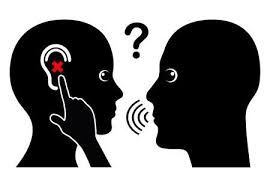Look, I don’t know everything. Maybe your kid is actually good at math, could get an A if only they “tried harder.” It is certainly possible that the whole vociferous debacle is a scam, that your child is faking their algebraic difficulties, that they are only an attitude adjustment away from a complete and thorough understanding of and appreciation for math and concomitant good math grades.
It is hard for me to imagine what a child could possibly gain from pretending to struggle with math class, math homework, and math exams. “Negative attention,” for example, has never made much sense to me. Certainly not when the alternative is positive attention. “I could have gotten all of these trig questions correct, but instead, I am choosing to be the subject of a noisy conversation.” Words no child ever spoke. But again, I’ve only been counseling families for 40-something years now and I don’t pretend to have each and every aspect of the parent-child dynamic sussed.
Similarly, I suppose it is also possible that your dad isn’t actually hard of hearing. Maybe he’s just pretending not to be able to understand half of what you say—to annoy you for some reason. The only possible upside to faking deafness I can think of is that it might delay learning that the lawn needs to be mowed. But “get out of the recliner and grab the lawnmower!” is a phrase likely going to be repeated. Whereas the downside of missing out on family conversations cannot be overstated. Nor can the cognitive decline associated with poor hearing. Nobody chooses deafness.
Maybe your son isn’t actually gay. Maybe he’s just pretending not to be attracted to women. Maybe he thinks it’s fun to be a pariah to his family, an outcast, marginalized, frequently overlooked for jobs and promotions. Maybe your gay son enjoys hiding his true nature from everyone, being set up with girls in whom he has no interest. Doesn’t sound like much fun to me. Nobody chooses to be gay. Or as a buddy of mine pointed out, “I was smart enough to be graduated near the top of my law school class, but I’m too stupid to decide on heteronormative? Nah.”
So as a member of a family with children who don’t excel in math, elders who don’t hear well, a gay son who—no surprise—doesn’t want to date women, you have two easily distinguishable alternatives.
You can insist that your kid is, in reality, able to get an A in math. But how’s that working out for you? Are you enjoying the arguments about homework, the punishments, the endless head butting? Is it fun communicating to your child that they are a liar and a fraud? Similarly you can keep speaking in low tones so that your father cannot understand you. And you can tell yourself, tell your friends, tell your son, that he’s not actually gay.
Or you can accept your family members for who they are, take them at their word, believe them when they tell you that they struggle in math, or that they can’t hear, or that they love whom they love.
Because not believing them frequently leads to irrevocable schisms resulting in broken familial bonds that are not easily mended. The result of refusing to acknowledge that your son is gay, or incessantly berating him and trying to convince him that he is heteronormative, is easy to predict and corroborated by experience.
If you refuse to attend your son’s marriage to another man, do you think he’s going to accept your excuse that making sure there were no unsharpened pencils in the house was a reasonable priority? Of course I wanted to come to your wedding but you know I always clip my toenails on Saturday night.
The consequence for your behavior is clear: not seeing your son. From one year to the next. For the rest of your life. Insuring that your son will not attend your funeral. Knowing that your son will not have a kind word to say about you when you’re gone. Guaranteeing that your legacy will be one of hate rather than one of acceptance.
Refusing to acknowledge your son for who he is. Now that’s a choice.
David Altshuler, M.S.
(305) 978-8917 | david@davidaltshuler.com
David Altshuler 2
About Me
David has toured hundreds of colleges, traditional boarding schools, and therapeutic programs. He has written books on admissions and parenting. His 500 articles on parenting, admissions, and children who learn differently are available here.
Recent Posts
Copyright © David Altshuler 1980 – 2024 | Miami, FL • Charlotte, NC | (305) 978-8917 | david@davidaltshuler.com






